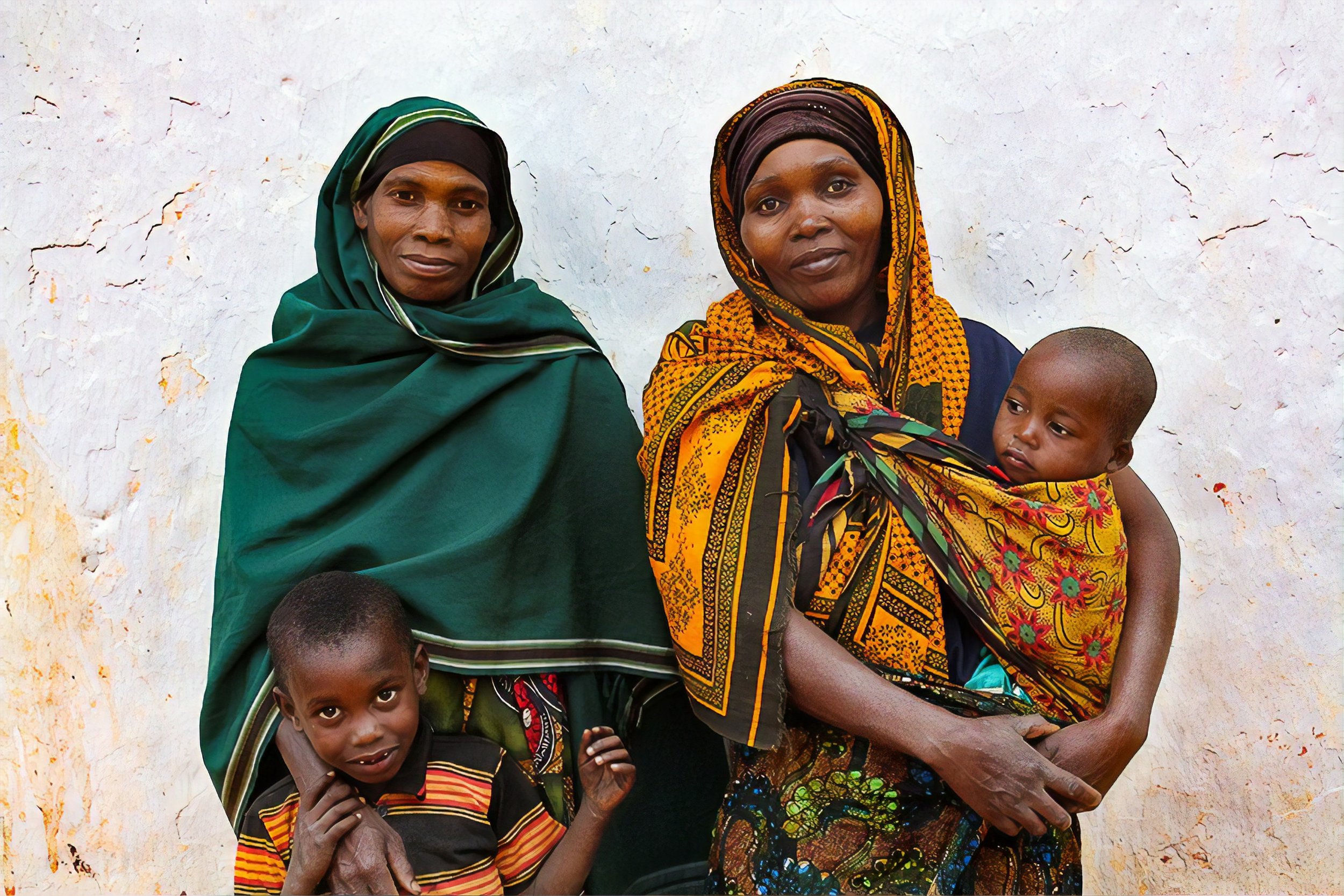Women’s Wellness
Women's wellness is a holistic approach to health that acknowledges the distinct biological, psychological, and social factors that influence a woman's well-being. It encompasses a broad range of practices, therapies, and modalities that are specifically designed to cater to women's unique health needs, preferences, and life stages.
Choosing to embark on the path of women's wellness is a significant step towards improved well-being.
With the Healers & Teachers app, you gain access to a wealth of resources, experienced practitioners, and a supportive community
Types of Women's Wellness Practices
In recent times, women's wellness has emerged as a vital category in the realm of healing and wellness. This ever-expanding field recognizes the unique needs of women and provides tailored approaches to address these requirements. By encompassing a variety of practices and disciplines, women's wellness aims to empower women and nurture their physical, mental, and spiritual well-being. This article will explore the concept of women's wellness, its various types, applications, and the benefits it brings to the lives of modern women.
Physical Wellness: This includes activities such as yoga, Pilates, strength training, and aerobic exercises that aim to improve a woman's physical health and body awareness. Specialized fitness classes for women focus on building strength, flexibility, and endurance while addressing specific health concerns, such as pre- and post-natal fitness.
Emotional Wellness: Practices like counseling, support groups, and stress management techniques help women to manage emotions, build resilience, and cope with the unique challenges they face in their daily lives.
Nutritional Wellness: This involves developing healthy eating habits and understanding the unique nutritional needs of women. Expert guidance on topics like hormonal balance, fertility, pregnancy, and menopause can help women make informed choices for their health and well-being.
Hormonal Balance: Hormonal health plays a crucial role in a woman's overall wellness. Natural therapies like acupuncture, herbal medicine, and functional medicine can help address hormonal imbalances and related health issues.
Spiritual Wellness: Practices like meditation, mindfulness, and energy healing promote inner peace, self-awareness, and connection to a higher purpose. These practices can help women navigate the complexities of modern life with greater ease and clarity.
Approaches to Womens Wellness
Women's wellness practices distinguish themselves from general wellness practices by focusing on the specific needs and health concerns that women face throughout their lives. While general wellness practices aim to promote overall health and well-being for both men and women, women's wellness practices emphasize the unique aspects of female physiology, psychology, and life experiences. Here are some key differences between women's wellness and general wellness practices:
Hormonal Health: Women's wellness practices prioritize hormonal health, which plays a crucial role in many aspects of a woman's life, including menstruation, fertility, pregnancy, and menopause. These practices often involve natural therapies and treatments specifically designed to address hormonal imbalances and related health issues.
Life Stages: Women's wellness practices recognize the distinct life stages that women go through, such as puberty, childbearing years, and menopause, and tailor their approaches accordingly. This focus allows for more targeted and effective interventions that address the unique health challenges that women face during these periods.
Reproductive Health: Women's wellness practices place a strong emphasis on reproductive health, including menstrual health, fertility, prenatal care, and postnatal care. These practices aim to empower women with the knowledge and tools they need to make informed decisions about their reproductive health and well-being.
Emotional and Mental Health: Women's wellness practices recognize the unique psychological and social factors that influence women's mental health, such as societal expectations, gender roles, and experiences of discrimination or violence. These practices offer tailored support and resources to help women manage their emotions, build resilience, and cope with stress.
Body Image and Self-Esteem: Women's wellness practices acknowledge the societal pressures and expectations around beauty, body image, and weight that can impact a woman's self-esteem and mental well-being. These practices often incorporate body-positive messaging and approaches that help women develop a healthy relationship with their bodies and embrace their unique beauty.
Community and Support: Women's wellness practices often emphasize the importance of community and support in fostering a woman's overall well-being. By offering women-centered spaces, support groups, and mentorship programs, these practices create a nurturing environment where women can share their experiences, learn from one another, and empower each other in their wellness journeys.
Holistic and Integrative Approach: Women's wellness practices often adopt a holistic and integrative approach to health, combining conventional medicine with complementary and alternative therapies. This approach allows for a more comprehensive understanding of a woman's health and well-being and promotes a personalized, patient-centered approach to care.
Hormonal health
Hormonal health plays a vital role in women's wellness. A variety of approaches, practices, and therapies are available to help women address hormonal imbalances and improve their overall well-being. Below, we outline some popular options and provide guidance on how to make informed decisions about embarking on a hormonal health journey.
Functional Medicine: This approach focuses on identifying and addressing the root causes of hormonal imbalances by considering an individual's genetic, environmental, and lifestyle factors. Functional medicine practitioners may use advanced diagnostic testing, personalized nutrition plans, and targeted supplementation to restore hormonal balance.
Naturopathy: Naturopathic medicine emphasizes the body's innate ability to heal itself. Naturopaths often recommend a combination of herbal remedies, dietary modifications, and lifestyle changes to help regulate hormone levels naturally.
Acupuncture: This ancient Chinese practice involves the insertion of thin needles into specific points on the body to stimulate energy flow and promote hormonal balance. Acupuncture has been shown to help with various hormonal issues, including PMS, menopausal symptoms, and infertility.
Herbal Medicine: Many herbs have hormone-regulating properties and can be used to treat hormonal imbalances. Some popular choices include vitex (chasteberry), black cohosh, and maca root. It's essential to work with a qualified herbalist to ensure the proper use of herbs for your specific needs.
Bioidentical Hormone Replacement Therapy (BHRT): This therapy involves using hormones that are chemically identical to those naturally produced by the body to address hormonal imbalances. BHRT is often used for menopausal symptoms and can be customized to meet each individual's needs. It's crucial to work with a healthcare professional experienced in BHRT to determine the appropriate treatment plan.
Nutritional Therapy: A balanced diet plays a key role in maintaining hormonal health. Nutritional therapists can recommend specific foods, supplements, and dietary plans to help regulate hormone levels and support overall health.
Mind-Body Practices: Stress can significantly impact hormonal balance. Incorporating mind-body practices like yoga, meditation, and deep breathing exercises into your wellness routine can help reduce stress and promote hormonal harmony.
Life stages
Life stages play a significant role in women's wellness, as each stage presents unique health challenges and concerns. Below, we outline various approaches, practices, and types of care tailored to different life stages, helping women understand their options and make informed decisions about their wellness journey.
1. Adolescence and Puberty
During this stage, young women experience significant physical, emotional, and hormonal changes. The following practices can help support their well-being:
Comprehensive sex education: Understanding reproductive health, menstrual hygiene, and safe sexual practices is crucial for empowering young women to make informed decisions about their bodies.
Nutritional guidance: A balanced diet is essential for supporting growth and development during puberty. Consulting a nutritionist can help young women understand their unique nutritional needs.
Emotional support: Mental health professionals, support groups, or mentorship programs can provide guidance on managing the emotional challenges associated with adolescence.
Physical activity: Engaging in regular exercise can help young women build strength, maintain a healthy weight, and boost self-esteem.
2. Fertility and Childbearing Years
During this stage, women may be focused on family planning, pregnancy, and postpartum care. The following practices can help support their well-being:
Preconception care: Consulting a healthcare professional to optimize health and address any existing health issues can help improve fertility and prepare for a healthy pregnancy.
Prenatal care: Regular checkups with an obstetrician or midwife, along with prenatal vitamins and appropriate nutrition, can help ensure a healthy pregnancy for both mother and baby.
Childbirth education: Attending childbirth classes or working with a doula can help women prepare for labor and delivery, understand their birthing options, and develop a birth plan.
Postpartum care: Postnatal checkups, lactation support, and mental health care can help new mothers recover from childbirth and adjust to their new role.
2. Perimenopause and Menopause
During this stage, women experience hormonal shifts that can lead to various physical and emotional symptoms. The following practices can help support their well-being:
Hormone testing: Monitoring hormone levels through blood or saliva tests can help identify imbalances and inform treatment decisions.
Bioidentical hormone replacement therapy (BHRT): As mentioned earlier, BHRT can help alleviate menopausal symptoms by supplementing the body with hormones chemically identical to those produced naturally.
Nutritional support: A nutritionist can provide guidance on diet modifications and supplements to help manage menopause symptoms and support overall health.
Stress management: Practices like yoga, meditation, and mindfulness can help women cope with the emotional challenges of menopause.
Body image and self-esteem
Body image and self-esteem play a crucial role in women's wellness. A range of approaches, practices, and types of care are available to help women cultivate a positive self-image and build self-confidence. Here are some options to consider:
Psychotherapy:
Cognitive-Behavioral Therapy (CBT): This approach can help individuals identify and challenge negative thoughts and beliefs about their bodies and self-worth, promoting a more positive self-image.
Acceptance and Commitment Therapy (ACT): This therapy focuses on developing psychological flexibility, helping individuals accept their body image and engage in meaningful activities that align with their values.
Body Positivity and Self-Compassion:
Body-positive workshops: Attending workshops or seminars that promote body positivity can help women challenge societal beauty standards and develop a healthier relationship with their bodies.
Self-compassion practices: Incorporating self-compassion exercises, such as loving-kindness meditation or journaling, can help women cultivate a kinder, more accepting attitude towards their bodies and themselves.
Social Support:
Peer Support Groups: Connecting with others who share similar body image concerns can provide a safe space for sharing experiences, learning coping strategies, and finding emotional support.
Surrounding oneself with body-positive influences: Engaging with body-positive role models, communities, and media can help counteract societal pressures and promote a healthier body image.
Physical Activity and Mind-Body Practices:
Engaging in enjoyable physical activities: Participating in activities that bring joy and promote body appreciation can help improve self-esteem and foster a positive body image.
Yoga and Pilates: These practices can help individuals connect with their bodies, build strength, and develop a greater sense of self-awareness and acceptance.
Art and Creative Expression:
Art therapy: Using creative outlets like painting, drawing, or writing to explore and express feelings about body image can help individuals process and understand their emotions.
Dance and movement therapy: Engaging in expressive movement can help individuals connect with their bodies, release emotional tension, and cultivate self-acceptance.
Reproductive health
Reproductive health is a crucial aspect of women's wellness, encompassing menstrual health, fertility, pregnancy, and postnatal care. Understanding the various approaches, practices, and types of care available can help women make informed decisions about their reproductive health journey.
Menstrual Health
Tracking menstrual cycles: Using apps or journals to track menstrual cycles can help women identify patterns, irregularities, and potential health issues.
Pain management: Over-the-counter pain relievers, heating pads, and natural remedies like herbal teas can help alleviate menstrual pain. For chronic or severe pain, it's essential to consult a healthcare professional.
Nutrition: Eating a balanced diet and staying hydrated can help reduce menstrual symptoms and promote overall reproductive health.
Fertility and Conception
Fertility awareness methods (FAM): Tracking basal body temperature, cervical mucus, and other fertility signs can help women understand their menstrual cycles and identify their fertile window.
Preconception care: Optimizing health before conception, including managing chronic conditions, adopting a healthy diet, and taking prenatal vitamins, can improve fertility and support a healthy pregnancy.
Assisted reproductive technologies (ART): For women facing fertility challenges, treatments like in vitro fertilization (IVF) or intrauterine insemination (IUI) can help achieve pregnancy.
Pregnancy Care
Prenatal care: Regular checkups with an obstetrician or midwife, prenatal vitamins, and appropriate nutrition can help ensure a healthy pregnancy.
Prenatal testing: Screening tests can identify potential health issues and provide early intervention if necessary.
Exercise during pregnancy: Engaging in gentle exercises like prenatal yoga or swimming can help maintain fitness, alleviate pregnancy discomforts, and prepare for labor.
Childbirth and Delivery
Childbirth education classes: Attending classes or workshops can help women understand their birthing options and develop a birth plan.
Doula support: A doula can provide emotional, physical, and informational support throughout pregnancy, labor, and delivery.
Birth settings: Women can choose to give birth in a hospital, birthing center, or at home, depending on their preferences, risk factors, and available resources.
Postnatal Care
Postpartum checkups: Regular checkups with a healthcare provider can monitor the mother's physical and emotional recovery and address any concerns.
Lactation support: Consulting a lactation consultant can help with breastfeeding challenges and ensure proper infant nutrition.
Pelvic floor rehabilitation: Physical therapy and targeted exercises can help women regain pelvic floor strength and function after childbirth.
Healing and Growth begins with you
Remember, the journey towards holistic health and wellness is a personal one, and it can be comforting and reassuring to know you're not alone. With the Healers & Teachers app, you'll have a wealth of resources and a supportive community right at your fingertips, ready to assist you every step of the way.
The Healers & Teachers app offers:
Access to diverse practitioners specializing in various aspects of women's wellness, who can provide personalized guidance tailored to your unique needs and goals.
A range of services, including one-on-one consultations, group classes, workshops, and specific wellness practices, along with educational events and webinars.
A nurturing and supportive community where you can connect with other women on a similar journey, share experiences, ask questions, and learn from collective wisdom.
















